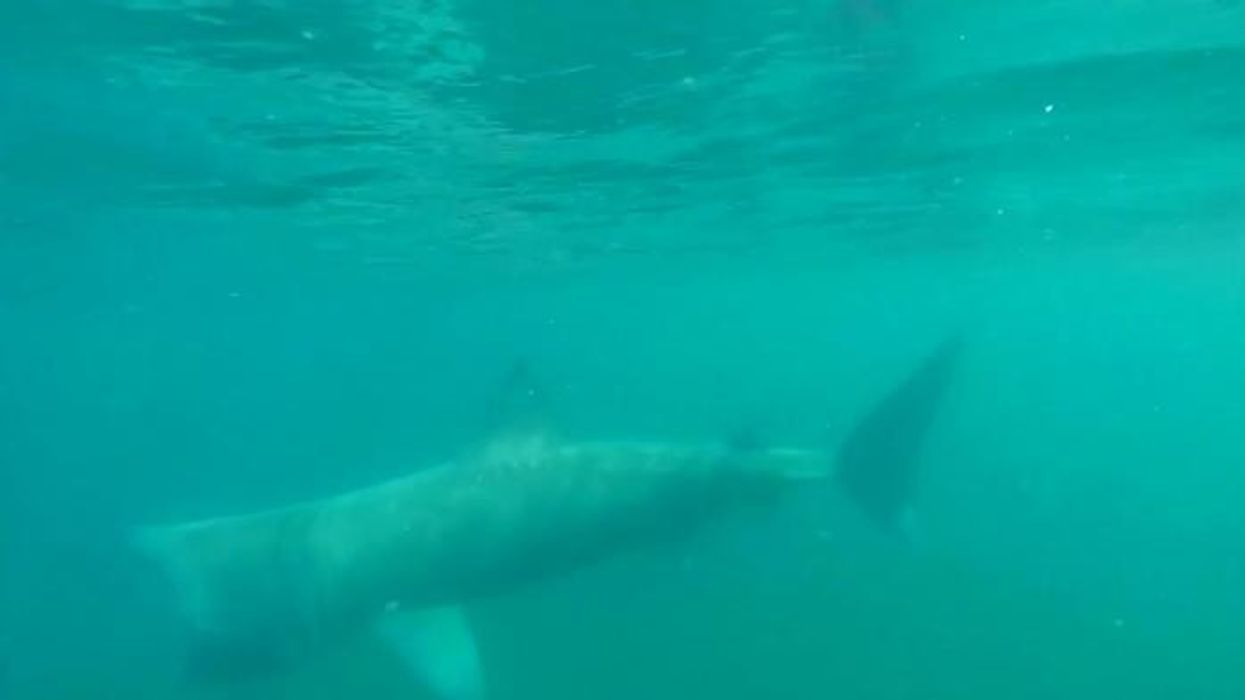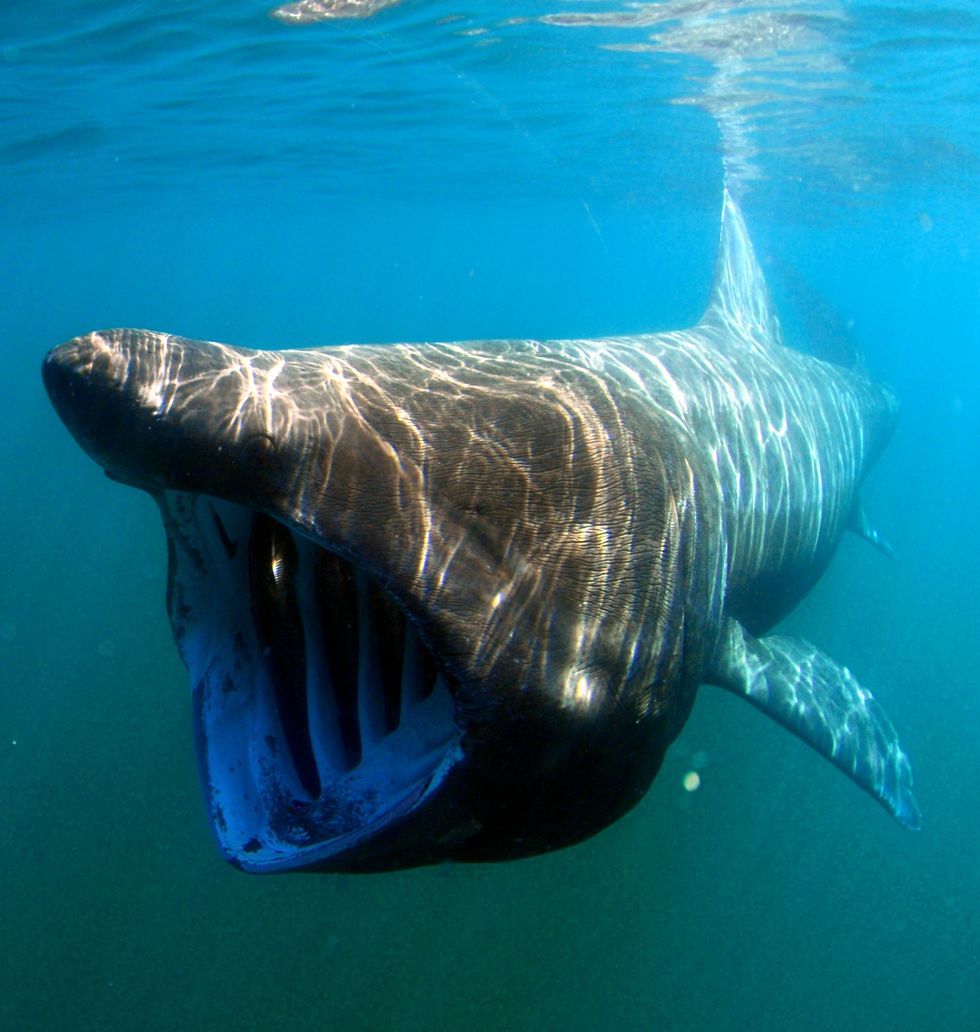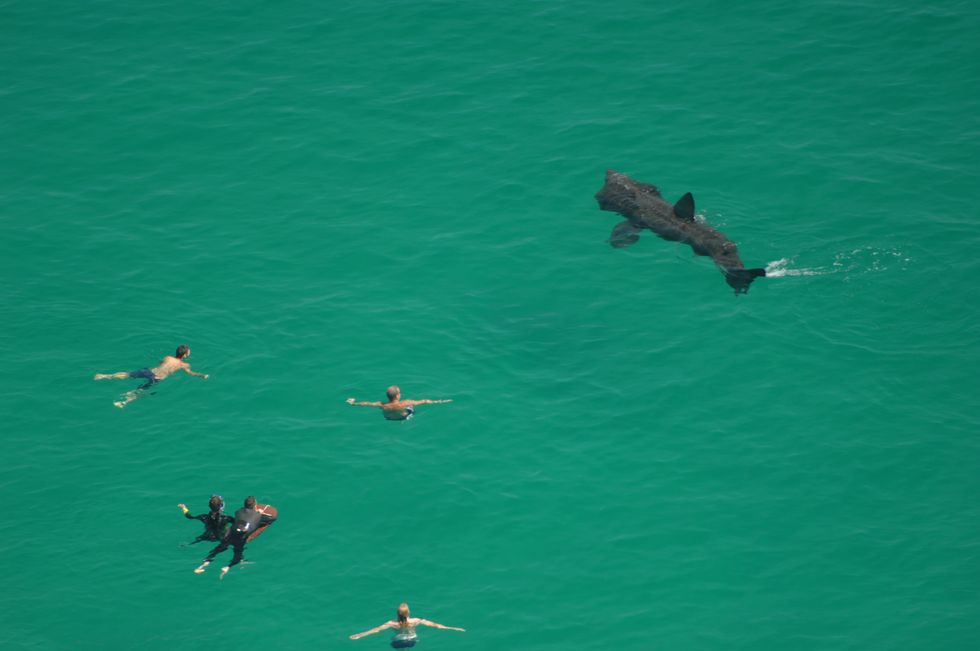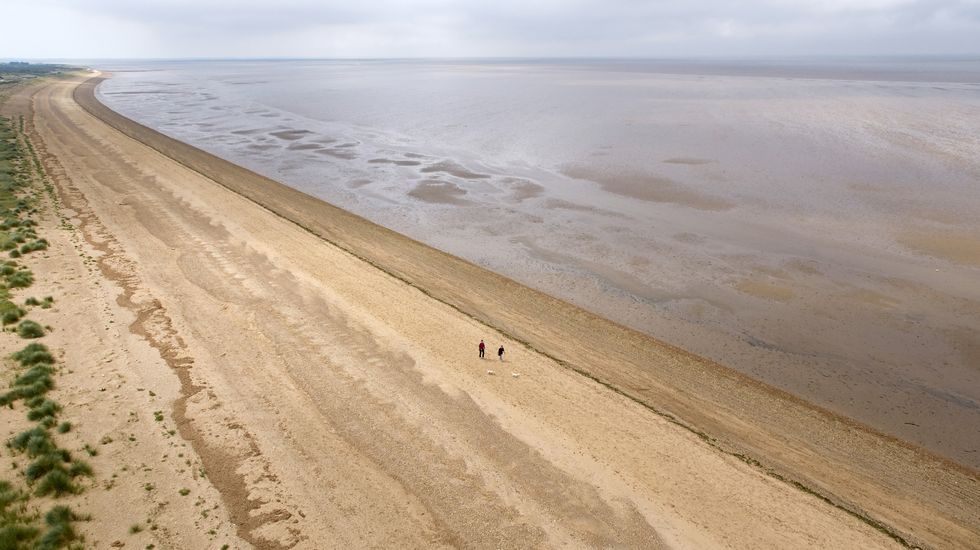More sharks to arrive in British waters as scientists issue alert for boom in endangered marine animals

WATCH: Shark spotted in UK waters as children flee the sea |
GB NEWS

Mobile species will cope better, whereas static creatures will find adapting much harder
Don't Miss
Most Read
Trending on GB News
The UK could see a sharp increase in the number of endangered sharks, rays and native oysters as Britain's coastal waters are heating up, according to scientists.
The rise in ocean temperatures could see habitats transform as many creatures are forced to adapt.
While the UK could welcome many marine species, the changes could result in animals native to Britain struggling with the new environment.
Researchers at the Centre for Environment, Fisheries and Aquaculture Science mapped 19 threatened marine species that could respond to climate change in UK seas.

Native oysters, basking sharks and spurdog sharks, which can grow up to 1.6 metres, are predicted to benefit the most from the changes
|GETTY
Mobile species will cope better, whereas static creatures will find adapting harder.
Native oysters, basking sharks and spurdog sharks, which can grow up to 1.6 metres, are predicted to benefit the most from the changes.
A small creature called a sea pen, which helps to build reefs and the ocean quahog - a type of clam that can live more than 500 years - are predicted to decline significantly by the end of the century.
Another creature that could be negatively impacted is the clam, the world's longest living animal.

A basking shark was spotted by swimmers off the coast of Cornwall
|GETTY
Scientists predict that the North Sea will become a biodiversity hotspot in the next 50 years, with creatures migrating to the new habitat.
In May, the warm British weather saw UK waters rise to four degrees warmer than usual, according to data.
According to the researchers who looked at 20 places that have heated up the most over the past half a decade globally, UK waters see the most significant effects of climate change.
UK fishing communities and beach swimmers have reported increased jellyfish around the coastline.

UK fishing communities and beach swimmers have reported increased jellyfish around the coastline
|GETTY
The report focuses on salinity and sediment levels until 2060, two different projections for sea temperatures.
A separate study by the UK Met Office, published in the journal Weather, highlights the rapidly increasing likelihood of extreme air temperatures for the UK.
The chance of seeing temperatures above 40C is now more than 20 times greater than it was during than 1960s, scientists estimate.
They add that there's a 50 per cent chance of seeing a 40C day again - last recorded in July 2022 - in the next 12 years.
More From GB News










